Chapman University announces new science faculty
Chapman University announced the appointment of several new faculty for the Schmid College of Science and Technology. Six scientists from accomplished institutions will join Chapman in the next 18 months with Ph.D. degrees in the fields of biological sciences and biochemistry.
“These talented individuals will bring tremendous expertise and experience to our existing academic programs and research mission,” said
Andrew Lyon, Ph.D., dean of the Schmid College of Science and Technology
. “The students will benefit from a richer set of course offerings, combined with the opportunity to learn and do research side by side with distinguished scholars.”
Specifically, the new faculty are:
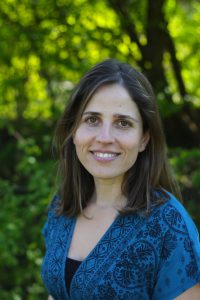 Dr. Patricia Castro Lopes
Dr. Patricia Castro Lopes
— will join as an assistant professor of biological sciences in the fall of 2017, and in the meantime will be finishing up her postdoctoral work at the University of Zurich. In her own words, Patricia is interested in understanding:
”
…social behavior by studying it at several levels of organization, ranging from genes, to hormones, the brain, the individual, and ultimately to the dynamics of a whole social group. I consider my research to be question, rather than organism-driven, and the research…can be conducted in a wide range of social animals, combining lab and field studies.
“
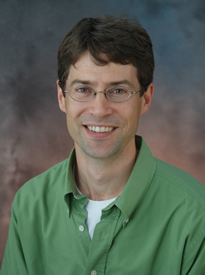 Dr. Douglas Fudge
Dr. Douglas Fudge
—will join as an associate professor of biological sciences in fall 2016. Professor Fudge comes from the Department of Integrative Biology at the University of Guelph where he has built a research program focused on the organismal biology of hagfishes. In his words:
“Our work is multi-disciplinary and integrative, employing concepts and methods from biomechanics, physiology, cell biology, proteomics, materials science, and engineering. While our main focus is fundamental, discovery-based research, some of our findings have inspired practical applications, and biomimetic projects are now a major source of funding in my lab.”
In addition to his diverse research program, Dr. Fudge is an accomplished educator, having earned a M.A.T in Science & Math Education from Cornell University in 1992.
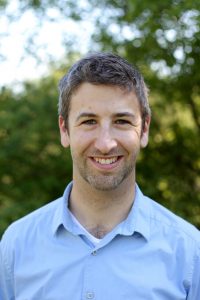 Dr. Gregory Goldsmith
Dr. Gregory Goldsmith
—will join as an assistant professor of biological sciences in the fall of 2017. Dr. Goldsmith will also serve as the program director for the college’s new Grand Challenges Initiative, which is aimed at delivering a team-based, interdisciplinary learning experience to all Schmid College undergraduates.
In the meantime he will be finishing up his stint as a Marie Curie Co-Fund Research Fellow at the Paul Scherrer Institute in Switzerland. Dr. Goldsmith is a broadly trained ecologist, who is currently studying the ”
positive and negative effects of leaf wetting on plant, community, and ecosystem function.
” Additionally, he has deep scholarly interests various aspects of science education, outreach, and communication, which will lend him well as in his hybrid role as Grand Challenges Initiative Program Director.
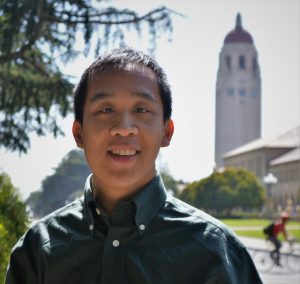 Dr. Jeremy Hsu
Dr. Jeremy Hsu
—will join as an instructor of biological sciences in fall 2016. Dr. Hsu has broad interests in population biology and conservation genetics, and is currently putting the finishing touches on his research at Stanford University. That work focuses on the impact of recent environmental perturbations, such as volcanic eruptions, on the population genetics of the tuco-tuco, a rodent genus endemic to South America.
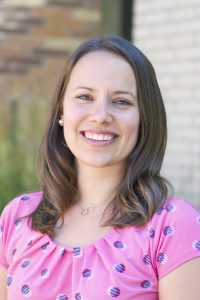 Dr. Cassandra Medvedeff
Dr. Cassandra Medvedeff
—will join as an instructional assistant professor of biological sciences in fall 2016. Dr. Medvedeff is an ecosystem ecologist interested in the intersection between wetland carbon cycling and global change. She has been a part of the Schmid College since 2013 as a post-doctoral researcher working on a project exploring climate change in Minnesota peatlands. For the past year, she has served as an instructional assistant professor serving in both lecture and laboratory courses in Biology.
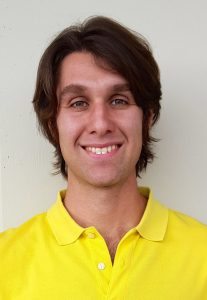 Dr. Cedric Owens
Dr. Cedric Owens
— will join as an assistant professor of biochemistry in the fall 2016. He is a biochemist whose research provides interesting links between chemistry, biochemistry, food science, and biology. In his own words, his research:
“revolves around questions related to catalysis and regulation of biological nitrogen fixation, the bacterial conversion of dinitrogen (N2) to ammonia (NH3) by the enzyme nitrogenase. My laboratory will be highly interdisciplinary and investigate biological nitrogen fixation at the genetic, biochemical, and structural level. The long-term goal of my research is to leverage understanding of biological nitrogen fixation to engineer nitrogen fixing bacteria that can be used as natural fertilizers.”
Chapman University continued its growth in the sciences with a groundbreaking in April for a new
Center for Science and Technology.
Scheduled to open in the fall of 2018, the Center for Science and Technology is the largest and most expensive building in the university’s history. The $130 million, three-story building will cover 140,000 square feet, and be the new home for Chapman’s Schmid College of Science and Technology.
This groundbreaking follows in the steps of other major announcements from Chapman in the past few years dedicated to growth in science; most recently filling a newly created position of vice president for research. In 2014 Chapman opened a new campus in Irvine now known as the Harry and Diane Rinker Health Science campus, which houses graduate level programs for the
Crean College of Health and Behavioral Sciences
in addition to
Chapman’s School of Pharmacy
—the first in Orange County. Chapman also has in the works the development of a Physician’s Assistant program.
About the Schmid College of Science and Technology
Chapman University’s
Schmid College of Science and Technology
offers 10 undergraduate degree programs, three graduate degree programs, one Ph.D. degree and several integrated “4+1” degree programs in both basic and applied sciences. The undergraduate programs include biochemistry and molecular biology, biological sciences, chemistry, computer science, data analytics, environmental science and policy, mathematics, mathematics and civil engineering, physics, and software engineering. The graduate programs include food science, MBA/food science joint degree, and computational and data sciences, which has both an M.S. and Ph.D. degree offering. The college is also affiliated with three Centers of Excellence in: Earth Systems Modeling and Observation; Computation, Algebra and Topology; and Complex and Hyper Complex Analysis, as well as the Institute for Quantum Studies.
Consistently ranked among the top universities in the West,
Chapman University
attracts highly qualified students from around the globe. Its programs are designed to encourage leadership in innovation, creativity and collaboration, and are increasingly recognized for providing an extraordinary educational experience. The university excels in the sciences and humanities, business and economics, educational studies, film and media arts, performing arts, and law. Student enrollment in graduate and undergraduate programs is approaching 8,000 and Chapman University alumni are found throughout the world. Visit us at
www.chapman.edu
.
Follow us on Facebook at:
Chapman University Facebook
On Twitter and Instagram at:
@ChapmanU
On YouTube at:
Chapman University YouTube Channel
###
Categories
Recent Posts
- ANNETTE BENING, ED ASNER, AND GARY COLE JOIN CAST CRITICALLY ACCLAIMED PLAY BRINGS THE HUMAN EXPERIENCE OF WARFARE TO LIFE
- DISNEY EXECUTIVES AND OTHER ORANGE COUNTY LEADERS JOIN CHAPMAN UNIVERSITY GOVERNING BOARDS
- Chapman University’s Office of the Provost and Musco Center Presents Provost’s Arts & Lecture Series
- General H. R. McMaster visits to commemorate partnership between Chapman University and Richard Nixon Foundation
- More Category 5 Hurricanes Forecasted by Scientists
Archives
- October 2018
- September 2018
- August 2018
- May 2018
- April 2018
- March 2018
- February 2018
- January 2018
- December 2017
- November 2017
- October 2017
- September 2017
- August 2017
- July 2017
- June 2017
- May 2017
- April 2017
- March 2017
- February 2017
- January 2017
- December 2016
- November 2016
- October 2016
- September 2016
- July 2016
- June 2016
- May 2016
- April 2016
- March 2016
- February 2016
- January 2016
- December 2015
- November 2015
- October 2015
- September 2015
- August 2015
- July 2015
- June 2015
- April 2015
- March 2015
- February 2015
- January 2015
- December 2014
- November 2014
- October 2014
- September 2014
- August 2014
- July 2014
- June 2014
- May 2014
- April 2014
- March 2014
- February 2014
- January 2014
- December 2013
- November 2013
- October 2013
- September 2013
- August 2013
- July 2013
- June 2013
- May 2013
- April 2013
- March 2013
- February 2013
- January 2013
- December 2012
- November 2012
- October 2012
- September 2012
- July 2012
- June 2012
- May 2012
- April 2012
- March 2012
- February 2012
- January 2012
- December 2011
- November 2011
- October 2011
- September 2011
- August 2011

